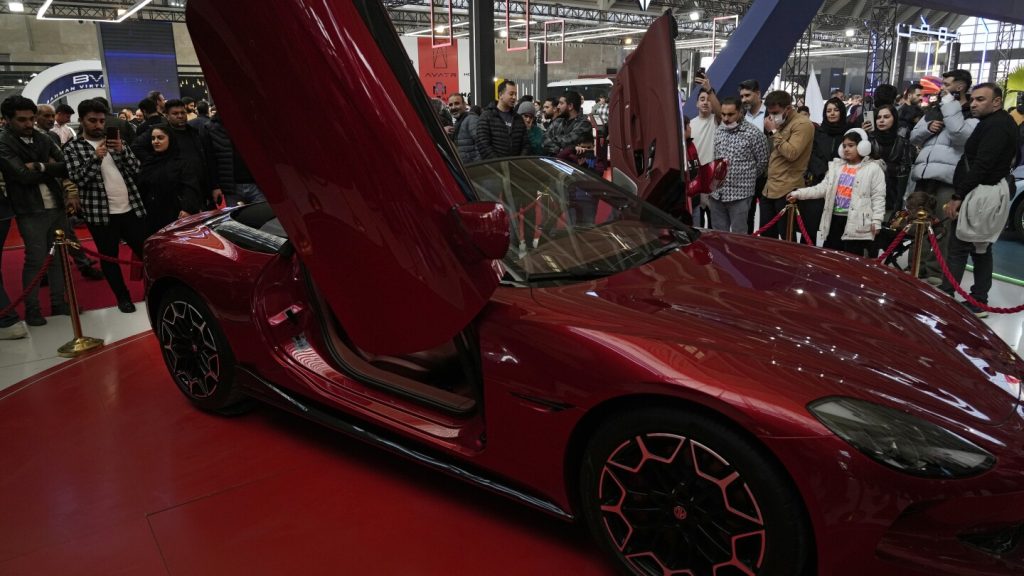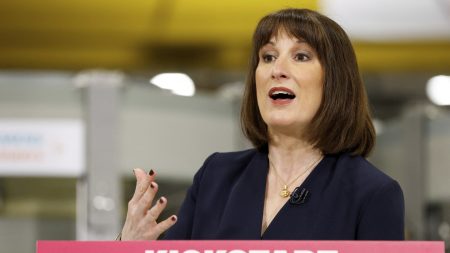The Economic Landscape of Iran: A Tale of Luxury and Struggle
In the bustling city of Tehran, a young architecture student named Amirhossein Azizi celebrated his 19th birthday with a gift many in Iran can only dream of: the latest iPhone 16 Pro Max. The hefty price tag of 1.6 billion rials ($1,880) for the device, plus an additional 450 million rials ($530) for import fees and registration, underscores the stark economic realities faced by Iranians. Azizi’s purchase is a testament to the enduring demand for luxury goods, even as the country grapples with a cash-strapped economy. His father, Mohammad, couldn’t help but comment on the lavish spending, musing that if young people had to earn the money themselves, they might think twice before parting with it. For Iran’s government, however, such purchases are a double-edged sword. They provide much-needed tax revenues, but they also highlight the dire economic straits the country finds itself in.
The "Resistance Economy" and Its Impact on Everyday Life
The concept of a "resistance economy" was first introduced by Iran’s Supreme Leader, Ayatollah Ali Khamenei, nearly 15 years ago, as a response to crippling international sanctions over its nuclear program. The idea was to create an economy that could withstand external pressures by relying on domestic production and reducing dependence on foreign goods. In practice, this has meant that Iranians have been pushed toward buying locally produced vehicles, often criticized for their poor quality and lack of safety standards. These cars have earned the dubious nickname of "death wagons" among the population. Similarly, the government’s decision to restrict the import of newer iPhones led to a scramble for older models, driving up their prices and creating a thriving market for second-hand devices.
While the "resistance economy" has allowed Iran to survive under sanctions, it has come at a significant cost to the average citizen. The value of the rial has plummeted, with the exchange rate reaching record lows against the U.S. dollar. Just a decade ago, 1 dollar could be exchanged for 32,000 rials; today, it is worth a staggering 885,000 rials. This drastic devaluation has eroded the savings of ordinary Iranians, forcing many to turn to alternative forms of wealth, such as gold, real estate, and cryptocurrencies. Some have even fallen prey to get-rich-quick schemes, desperate to make ends meet.
Lifting Import Restrictions: A Desperate Bid for Cash
In a bid to generate much-needed revenue, Iran has recently lifted its import bans on luxury goods like foreign cars and high-end iPhones. This decision has been framed as a way to boost the economy, but it also reveals the government’s growing desperation. By allowing the import of these goods, Iran hopes to tap into the lucrative market for luxury items, which are in high demand despite the economic hardships faced by the population. The lifting of restrictions has been particularly beneficial for high-end iPhones, which have become a status symbol in Iran. Customs data shows that in the last Persian year alone, Iran imported $3.2 billion worth of mobile phones, with iPhones being among the most sought-after models.
However, this strategy is not without its challenges. The government’s decision to lift import restrictions has done little to address the underlying economic issues, such as the lack of foreign currency reserves and the impact of U.S. sanctions. Instead, it has created a situation where only the wealthy can afford these luxury goods, further exacerbating income inequality. For instance, while imported cars are now available in limited quantities, their prices have skyrocketed due to high tariffs and limited supply, making them inaccessible to the average Iranian.
The Role of Trump and U.S. Policy in Iran’s Economic Woes
The economic situation in Iran has been further complicated by the policies of former U.S. President Donald Trump, who unilaterally withdrew from the 2015 nuclear deal and reimposed sanctions on the country. These sanctions have had a devastating impact on Iran’s economy, leading to a sharp decline in the value of the rial and making it difficult for the country to access foreign currency. Trump’s administration also took steps to target Iran’s oil exports, which are a crucial source of revenue for the government. In response, Iran has turned to countries like China, which continues to buy Iranian oil at a discount, but this has not been enough to offset the losses.
Despite the challenges, Iran has managed to survive under these sanctions, in part due to the efforts of powerful entities like the Revolutionary Guard, which has become a major player in the economy. The Guard has been involved in everything from oil sales to the production of locally made cars, creating a new class of wealthy elites loyal to the regime. However, for the average Iranian, life under sanctions has been a constant struggle. The lifting of import restrictions on luxury goods has provided some small measure of relief, but it has done little to address the broader economic issues facing the country.
Experts Weigh In: The Future of Iran’s Economy
As Iran’s economic situation continues to deteriorate, experts are sounding the alarm about the long-term consequences of the government’s policies. According to economist Saeed Leilaz, the lifting of import restrictions on luxury goods is more about creating a perception of progress than addressing the real economic challenges. "Lifting restrictions on a few platforms or allowing iPhone imports are the kinds of steps the government can take quickly and with minimal cost to create a sense of progress," he said. However, such measures do little to address the systemic issues plaguing the economy, such as the lack of foreign investment and the impact of U.S. sanctions.
For car dealer Saber in Tehran, the situation is clear: "Since the number of newly imported cars is still limited, only a few people can afford them. As a result, imported cars have skyrocketed in price on the open market." This dynamic has created a situation where only the wealthy can benefit from the lifting of import restrictions, while the majority of Iranians continue to struggle. With the U.S. dollar still reigning supreme in the global economy, Iran’s rial continues to lose value, making it difficult for ordinary people to afford even the most basic goods.
Conclusion: A Glimmer of Hope Amid the Chaos
Despite the dire economic situation, there are some signs of hope for Iran. The government’s decision to lift import restrictions on luxury goods has provided a small boost to the economy, and there are indications that officials are willing to engage in talks with the West to find a way out of the current impasse. However, with the U.S. continuing to impose harsh sanctions and the value of the rial in free fall, the road to recovery will be long and fraught with challenges. For now, Iranians like Amirhossein Azizi will continue to find ways to adapt, whether that means splurging on a new iPhone or holding onto gold and real estate as a hedge against economic uncertainty. But for the average citizen, the struggle to make ends meet will remain a daily reality.
In the end, Iran’s economic future will depend on a combination of internal reforms and external factors, including the outcome of nuclear talks and the policies of the next U.S. administration. Until then, the Iranian people will have to navigate a complex and uncertain economic landscape, one where luxury items like iPhones and foreign cars serve as a reminder of the deep-seated challenges facing the nation.








